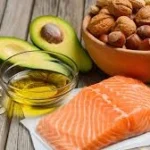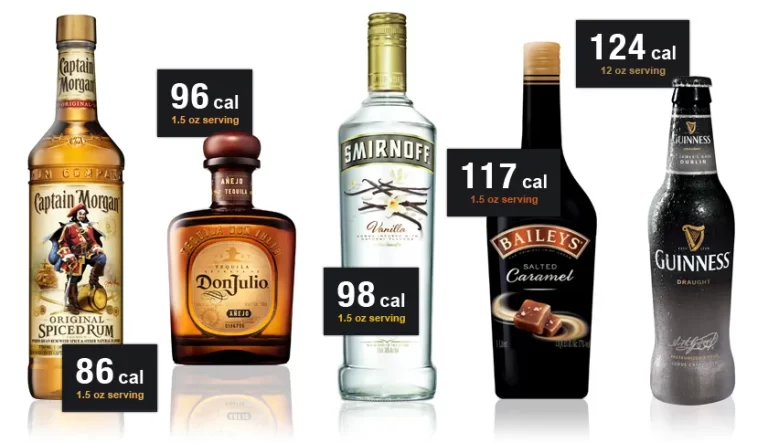Fat
What’s Fat?
Fat is a vital macronutrient that plays essential roles in the body, providing energy, supporting cell growth, and aiding in the absorption of fat-soluble vitamins (A, D, E, and K).
It is a concentrated source of energy, supplying 9 calories per gram, more than double the energy provided by carbohydrates or proteins. While often viewed negatively in the context of weight management, fats are crucial for overall health when consumed in appropriate quantities and types.
Three molecules linked together to make up the fat in our bodies. The term “ triglyceride ” refers to this three- molecule configuration.
Although our systems can produce most of the fat we require, some fats are not. Diet is the only way to get these fats. The reason these fats are referred to be “ essential ” fats is that we must get them from our diet. Omega- 3 and Omega- 6 fats are essential fats that may be found in foods like flaxseed and fish as well as in foods like maize oil, nuts, and seeds.
Importance of Fat
Maintaining your health depends on eating adequate fat. Consuming only extremely minimal amounts of fat is n’t advised. Fat is necessary because:
- Fat keeps our skin healthy and aids in the absorption of vitamins A, D, E, and K.
- Unsaturated fats from plant oils are an example of a healthy fat that can help reduce LDL( lousy) cholesterol levels.
- Fat also gives food flavor and prolongs feelings of fullness after meals.
The Function of Fat in the Body
- Energy Storage
- Cell Structure
- Insulation
- Nutrient Absorption
- Hormone Regulation
Energy Storage: With nine calories per gram, fat is a concentrated source of energy( as opposed to four calories per gram from protein and carbs). When the body needs energy, particularly during times of fasting or vigorous exercise, it consumes the fat stored in adipose tissue.
Cell Structure: Fat is a vital component of cell membranes, and it adds to both their structure and functionality.
Insulation: Fat protects organs and tissues from cold, therefore assisting in the regulation of body temperature.
Nutrient Absorption: Fat is necessary for the intestinal absorption of some vitamins, such as the fat-soluble vitamins A, D, E, and K.
Hormone Regulation: Hormones, particularly those that control metabolism and reproductive health, are produced in part by fats.
Types Of Fat
In general, fats may be divided into two categories based on their chemical makeup and health effects good fats and bad fats.
- Unsaturated Fats
- Saturated
- Trans Fats
Unsaturated Fats: Because of their many positive effects, including lowering blood cholesterol, reducing inflammation, and stabilizing cardiac rhythms, unsaturated fats which are liquid at room temperature — are regarded as healthy fats. Plant based foods such as seeds, nuts and vegetable oils are the main origins of unsaturated fats.
Two categories of unsaturated fats are considered “ good ”
- Monounsaturated fats
- Polyunsaturated fats
Monounsaturated fats: Canola, peanut, and olive oils have substantial positions of monounsaturated fats. The avocado Nuts like pecans, almonds, hazelnuts Pumpkin, and sesame seeds, among others.
Polyunsaturated fats: Sunflower, corn, soybean, and flaxseed oils have substantial situations of polyunsaturated fats. Nuts Seeds of flax Despite having a higher monounsaturated fat content, fish canola oil is also a rich source of polyunsaturated fat.
Among polyunsaturated fats, omega- 3 fats are an essential kind. Eating two to three servings of fish each week is a great method to admit omega- 3 fats. Canola or soybean oil, walnuts, and flax seeds are good plant sources of omega- 3 fats. In a study conducted by HSPH scientists, higher blood omega- 3 fats are linked to a decreased risk of early mortality in older persons.
Saturated Fats: Every fat- containing meal has a combination of different kinds of fats. Though far smaller than the amounts in meat, cheese, and ice cream, even nutritional foods like chicken and almonds contain trace levels of saturated fat. The majority of saturated fat is found in animal products, however, some plant foods, similar coconut, coconut oil, win oil, and win kernel oil are also high in saturated fat.
- According to the Dietary Guidelines for Americans, saturated fat should make up less than 10 of daily caloric input.
- Indeed more extreme is the American Heart Association’s recommendation that saturated fat shouldn’t exceed 7 of total calories.
- However, if people substitute refined carbs for saturated fat, cutting back on saturated fat is probably not going to help. While replacing saturated fat with refined carbs decreases “ bad ” LDL cholesterol, it also lowers “ good ” HDL cholesterol and raises triglycerides. Overall, the impact is just as detrimental to the heart as consuming excessive amounts of saturated fat.
- The association between consumption of saturated fat and cardiovascular disease( CVD), stroke, and coronary heart disease( CHD) was examined. Their contentious conclusion is that “ prospective epidemiologic studies do n’t give enough evidence to conclude that dietary saturated fat is associated with an increased risk of CHD, stroke, or CVD. ”
Trans Fats: The process of hydrogenation, which produces trans adipose acids, frequently known as trans fats, involves heating liquid vegetable oils with hydrogen gas and a catalyst.
- Vegetable oils come less susceptible to rancidity and more stable when partially hydrogenated.
- also, the oil is solidified by this procedure, enabling it to be used as shortening or margarine.
- Fast food is best fried in partially hydrogenated oils because it can tolerate repeated heating without degrading.
- These factors made partly hydrogenated oils a staple in the food industry and restaurants, used for margarine, frying, baking, and reused snack items.
- The worst kind of fat for the heart, blood vessels, and body as a whole are trans fats since they drop good HDL and increase bad LDL to cause inflammation, an immune-related response linked to diabetes, heart complaint, stroke, and other habitual diseases. help to cause insulin resistance. Even low levels of trans fat can have detrimental health consequences; the risk of coronary heart disease rises by 23 for every 2 more trans fat calories taken daily.
Fat And Health
The kind and amount of fat ingested have a significant influence on health:
- Heart Health
- Weight Management
- Brain Health
Heart Health: Overconsumption of trans and saturated fats raises LDL cholesterol levels, which increases the threat of heart disease. Cardiovascular disease risk is reduced when bad fats are swapped out for good fats, such as monounsaturated and polyunsaturated fats.
Weight Management: Consuming excessive amounts of fat might lead to weight gain since it is high in calories. When included in a balanced diet, healthy fats in moderation can aid in satiety, or feeling full, which may help with weight management.
Brain Health: Since fat makes up over 60% of the brain, omega-3 fatty acids are very crucial for mental and cognitive wellness. Diets rich in omega-3 fatty acids, in particular, have been associated with a lower incidence of mental health conditions like depression and cognitive impairment.
Which fat to Include in diet?
One way to improve general health is to restrict bad fats and increase good fats in the diet. You may include healthy fats in your meals in the following ways:
Healthy Fats:
- Monounsaturated fats
- Polyunsaturated fats
- Omega-3 fats
Monounsaturated fats: Olive oil, avocado, almonds, cashews, peanut butter.
Polyunsaturated fats: Fatty fish (salmon, sardines), flaxseeds, chia seeds, walnuts, sunflower seeds.
Omega-3 fats: Fish (salmon, mackerel, sardines), flaxseeds, chia seeds, walnuts, hemp seeds.
Don’t Eat Too Much Saturated Fat: Reduce the amount of butter and lard you use, choose lean meats, and utilize low-fat dairy products.
Stay away from trans fats: Consume as little as possible of processed foods that include partly hydrogenated oils, such as fried foods, commercial baked products, and snack foods.
Summary
Although the body uses fat for several purposes, it’s crucial to pay attention to the kinds of fat that are ingested. Long-term health may be supported by a balanced diet that includes healthy fats, including those in nuts, seeds, avocados, and seafood. In the meantime, consuming too much trans and saturated fat will increase the chance of developing chronic illnesses.
FAQ’s
What is the definition of fats?
You obtain one kind of nutrient from your diet: fats. While eating too much fat might be unhealthy, some fats are necessary. The energy your body needs to function is provided by the fats you consume. The calories from the carbs you eat are used by your body while you work out.
What is called fat?
Fats are sometimes known as “lipids” or “fatty acids.” Three molecules are linked together to make up the fat in our bodies. The term “triglyceride” refers to this three-molecule configuration. Although our systems can produce most of the fat we require, some fats are not. Diet is the only way to get these fats.
Which fat is bad for health?
Trans and saturated fats are bad for health. The proportion of trans fats should be less than 1%. That’s smaller than 15 grams of saturated fat and lower than 2 grams of trans fat per day, based on a 2,000- calorie diet.
Is eating fat bad?
Meat and dairy products are the primary sources of saturated fat, which clogs arteries and causes cardiovascular disease. However, by lowering your cholesterol, monounsaturated and polyunsaturated fats—which are included in plants and healthy oils—actually save your health. Blood sugar levels are not much impacted directly by fat.
What are the disadvantages of fats?
Consuming too much fat in the diet has been associated with a higher risk of obesity, heart disease, and several forms of cancer.
References:
- Wikipedia contributors. (2024, November 27). Fat. Wikipedia. https://en.wikipedia.org/wiki/Fat
- What Are Fats? | Cardiac College. (n.d.). https://www.healtheuniversity.ca/EN/CardiacCollege/Eating/Fats
- Types of Fat. (2024, November 7). The Nutrition Source. https://nutritionsource.hsph.harvard.edu/what-should-you-eat/fats-and-cholesterol/types-of-fat/







